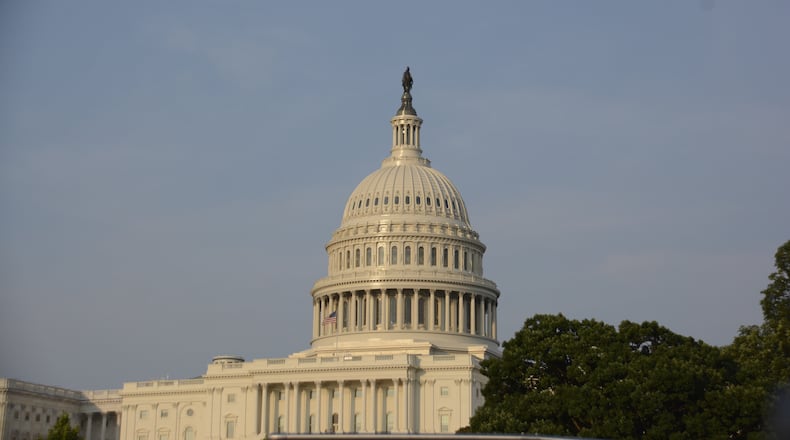Recently, U.S. Rep. Warren Davidson proposed a constitutional amendment that would require a citizenship question in the U.S. Census.
More than five dozen were introduced in the 115th Session of Congress. In the 116th Congress, 13 have been introduced by Democrats and 21 by Republicans. Here is a partial list of proposed constitutional amendments introduced since January:
• H.J. Res.2: Authorize Congress and the states to set reasonable limits on the raising and spending of money by candidates and others to influence elections. (Rep. Theodore E. Deutch, D-Florida)
• S.J. Res.3: Prohibit total outlays for a fiscal year from exceeding total receipts for that fiscal year unless Congress authorizes the excess by a two-thirds vote of each chamber. The prohibition excludes outlays for repayment of debt principal and receipts derived from borrowing. (Sen. Cindy Hyde-Smith, R-Mississippi)
• S.J. Res.5: Requires the Federal budget be balanced. (Sen. Mike Lee, R-Utah)
• H.J.Res.7: Abolishes the electoral college and to provide for the direct election of the President and Vice President of the United States. (Rep. Steve Cohen, D-Tennessee)
• H.J.Res.13: Denies the President of the United States the power to grant himself a reprieve or pardon for an offense against the United States. (Rep. Al Green, D-Texas)
• H.J. Res. 15: Requires each bill, order, resolution or vote must be submitted to the President of the United States to contain no more than one subject. It also mandates each subject shall be clearly and descriptively expressed in the title of the bill, order, resolution or vote. (Rep. Tom Marino, R-Pennsylvania)
• H.J.Res.16: Limits the total period an individual may serve as a member of Congress to 12 years. (Rep. Tom Marino, R-Pennsylvania)
• H.J.Res.19: Authorizes Congress to limit the number of terms Representatives and Senators may serve (though it does not specify a number). (Rep. Ralph Norman, R-South Carolina)
• H.J.Res.23: Lowering the minimum voting age from 18 to 16. (Rep. Grace Meng, D-New York)
• H.J.Res.26: Increases the term of the House members from two to four years. (Rep. Tom Marino, R-Pennsylvania)
• H.J. Res.33: Requires U.S. House of Representatives to be apportioned based on citizens counted in each state, rather than total population. (Rep. Warren Davidson, R-Ohio)
• H.J. Res.39: States the political speech of corporations and businesses would be waived as it relates to political contributions, and it grants Congress and the states the ability to establish contribution and expenditure limits in election to public offices. (Rep. Marcy Kaptur, D-Ohio)
———
3 QUICK POLITICS READS:
• Unanimous Supreme Court rules states are subject to seizure limits
• Large crowd hears judge issue dire warnings about impact of closing Middletown jail
• Ohio AG says state owed $15.8M from pharmacy benefit manager
About the Author

